 W
WBijan Abdolkarimi is an Iranian philosopher, thinker, translator and editor. He is associate professor of philosophy at Islamic Azad University North Tehran Branch. His main interests are ontology, political philosophy and the critique of religious and intellectual traditions. He claims to challenge the dominant ideological discourse in Iran. He has participated in debates at Iranian universities and also in IRIB TV4 in which he has opposed the notion of Islamic humanities. He is also a scholar of Heidegger's thought and philosophy.
 W
WAbu'l-Fazl ibn Mubarak, also known as Abul Fazl, Abu'l Fadl and Abu'l-Fadl 'Allami, was the grand vizier of the Mughal emperor Akbar, and author of the Akbarnama, the official history of Akbar's reign in three volumes, and a Persian translation of the Bible. He was also one of the Nine Jewels of Akbar's royal court and the brother of Faizi, the poet laureate of Emperor Akbar.
 W
WIraj Afshar was a bibliographer, historian, and an iconic figure in the field of Persian studies. He was a consulting editor of Encyclopædia Iranica at Columbia University and a full professor emeritus of University of Tehran.
 W
WSaeed Akef is an Iranian author and memoir writer who often writes about the Iran–Iraq War. His books have been one of the most widely published books about that war. Borunsi (2004) has been reprinted more than 200 times since its first edition, and is amongst the bestselling books in Iran. Nasime Taghdir has been a nominee in the 10th Holy Defense Year Book Award.
 W
WMirza Fatali Akhundov, also known as Mirza Fatali Akhundzade or Mirza Fath-Ali Akhundzadeh, was a celebrated Iranian Azerbaijani author, playwright, ultra-nationalist, philosopher, and founder of Azerbaijani modern literary criticism, "who acquired fame primarily as the writer of European-inspired plays in the Azeri Turkic language". Akhundzade singlehandedly opened a new stage of development of Azerbaijani literature. He was also the founder of materialism and atheism movement in the Republic of Azerbaijan and one of forerunners of modern Iranian nationalism. He wrote in Azerbaijani, Persian and Russian.
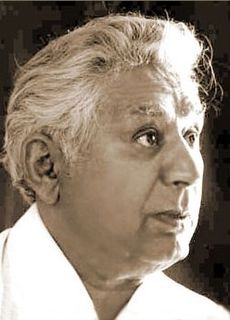 W
WBozorg Alavi was an influential Iranian writer, novelist, and political intellectual. He was a founding member of the communist Tudeh Party of Iran in the 1940s and – following the 1953 coup against Premier Mohammad Mossadegh – spent the rest of his life in exile in East Germany, first during the Pahlavi regime, then returning to Germany once more following the 1979 revolution. Cheshm'hā'yash, which was published in Iran in 1952 and was subsequently banned, is considered his finest novel. Alavi was also a very close friend of Iran's famous writer Sadegh Hedayat; these two created a literary group when they were residing in Paris called "sab'e group". Although Her Eyes is considered his masterpiece, Alavi also wrote many other books, such as the novel "Chamedan" (suitcase) which was written under the influence of Freudian psychology. His other novels "Mirza", "Fifty Three Persons" and "Gilemard" are mentioned in Iranian high-school textbooks. He did return to Tehran after the revolution but did not stay too long and decided to head back to Germany. Bozorg Alavi's contribution to Iranian Literature is profound due to the modernization movement in which he was a key member.
 W
WDavoud Amirian is an Iranian contemporary writer. He has published more than 26 books and won several awards. He is currently working on write memoirs, children's and adolescent literature, novels, comics, biographies of martyrs and screenwriting.
 W
WMahmud Pasha Angelović was the Grand Vizier of the Ottoman Empire from 1456 to 1466 and again from 1472 to 1474, who also wrote Persian and Turkish poems under the pseudonym Adni.
 W
WAbdolmohammad Ayati was an Iranian author, translator and researcher in the field of philosophy, history and Persian and Arabic literature. He was born on 5 May 1926 in Borujerd, Borujerd County, Lorestan Province, Iran and died on 11 September 2013 in Tehran, Iran. He was selected at the second Iran's Book of the Year Awards for Arabic to Persian translation of the book History of Arabic Language Literature.
 W
WEsmaeel Azar or Amir Esmaeel Azar is a professor of Persian literature and director of the Department of Persian Language at the Islamic Azad University, Science and Research Branch, Tehran, and director of the Farhangban Cultural and Artistic Institute. He also works as a presenter and expert on literary programs on Iran television, including the famous program called "Watching the Oath and the Beginning of the Word". He is a member of Art commission at the Supreme Council of the Cultural Revolution, Director of Persian Literature Department at the Economic Cooperation Organization, Member of the Naming Committee at the National Organization for Civil Registration of Iran, member of the scientific commissions of the Public Libraries of Iran and a member of the board of directors of the Comparative Literature Association of Iran.
 W
WAbbasgulu Bakikhanov, Abbas Qoli Bakikhanov, or Abbas-Qoli ibn Mirza Mohammad (Taghi) Khan Badkubi was an Azerbaijani writer, historian, journalist, linguist, poet and philosopher.
 W
WBahrām Beyzāie is a critically and popularly acclaimed filmmaker, playwright, theatre director, screenwriter, film editor, and ostād ("master") of Persian letters, arts and Iranian studies.
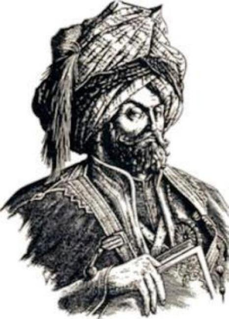 W
WSharaf al-Din Khan b. Shams al-Din b. Sharaf Beg Bedlisi was a medieval Kurdish Emir of the Emirate of Bitlis. But he is more known as a historian, writer and poet. He wrote exclusively in Persian. Born in the Garmrood village, in central Iran, between Arak and Qom, at a young age he was sent to the Safavid's court and obtained his education there.
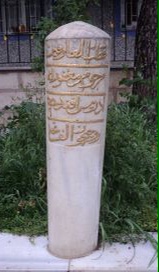 W
WIdris Bitlisi, sometimes spelled Idris Bidlisi, Idris-i Bitlisi, or Idris-i Bidlisi, and fully Mevlana Hakimeddin İdris Mevlana Hüsameddin Ali-ül Bitlisi, was an Ottoman Kurdish religious scholar and administrator from Bitlis. There is some controversy about his actual place of birth possibly having been around Diyarbekir. He wrote a major Ottoman literary work in Persian, named Hasht Bihisht, which began in 1502 and covered the reign of the first eight Ottoman rulers.
 W
WHamid Dabashi is an Iranian Professor of Iranian Studies and Comparative Literature at Columbia University in New York City.
 W
WAli Dehbashi is an Iranian journalist, Iranologist, researcher and writer.
 W
WAhmad Eghtedari, teacher, lawyer, writer, historian and geographer, was a prominent scholar in Persian Gulf studies. Historically, he was a descendant of Gerashi thanes. In his youth, he traveled on foot along the coasts of the Persian Gulf and Oman Sea and began mapping and documenting their topography.
 W
WNaim Bey Frashëri, more commonly Naim Frashëri, was an Albanian patriot, historian, journalist, poet, rilindas and translator who was proclaimed national poet of Albania. He is regarded as the pioneer of modern Albanian literature and one of the most influential Albanian cultural icons of the 19th century.
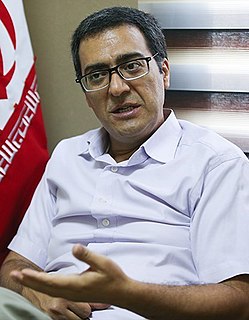 W
WMajid Gheisari is an Iranian writer and novelist. He was born on December 1966 in Tehran. He has won the International Eurasia Award from Russia for the premier novel in 2018.
 W
WAhad Gudarziani is a writer, researcher and journalist who is known for his resistance literature works in Iran. He was honored at the Second and Third Celebration of Sacred Defense Journalists and Writers Conference for his works as Exemplary Writer and Reporter.
 W
WGulbadan Begum was a Mughal princess and the daughter of Emperor Babur, the founder of the Mughal Empire.
 W
WSaeed Hajjarian is an Iranian reformist political strategist, journalist, pro-democracy activist and former intelligence officer. He was a member of Tehran's city council, and advisor to president Mohammad Khatami. On 12 March 2000, he was shot in the face by an assailant and severely disabled, an act many Iranians believe was in retaliation for his help in uncovering the chain murders of Iran and his significant help to the Iranian reform movement in general, according to the BBC.
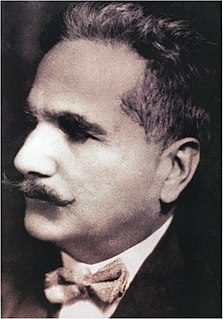 W
WSir Muhammad Iqbal was a Muslim poet and politician from Punjab, British India, whose poetry in Urdu and Persian is considered to be among the greatest of the modern era, and whose vision of an independent state for the Muslims of British India was to inspire the creation of Pakistan. He is commonly referred to as Allama Iqbal
 W
WIraj Kaboli is an Iranian writer, linguist and translator.
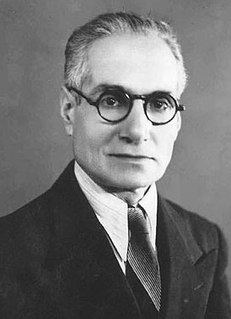 W
WSeyyed Ahmad Kasravi Tabrizi, Commonly known as Ahmad Kasravi, was a leading Iranian linguist, nationalist, religious reformer, historian and former Shia cleric. Born in Hokmabad (Hohmavar), Tabriz, Iran, Kasravi was an Iranian Azeri. Initially, Kasravi enrolled in a seminary. Later, he joined the Iranian Constitutional Revolution. He experienced a sort of conversion to Western learning when he learned that the comet of 1910 had been identified as a reappearance of Halley's comet. He abandoned his clerical training after this event and enrolled in the American Memorial School of Tabriz. Thenceforward he became, in Roy Mottahedeh's words, "a true anti-cleric."
 W
WŞemseddin Ahmed (1469–1534), better known by his pen name Ibn Kemal or Kemalpaşazâde, was an Ottoman historian, Sheikh ul-Islam, lawyer and poet.
 W
WMirza Aqa Khan Kermani was an Iranian intellectual reformer, a Babi, and son-in-law of Subh-i-Azal. In his writings, he advocates for political, social, and religious reform characteristic of his generation of intellectuals whose reformist ideas and engagement with sociopolitical themes set the stage for the Constitutional Revolution of 1906, and the political and literary changes that were to follow.
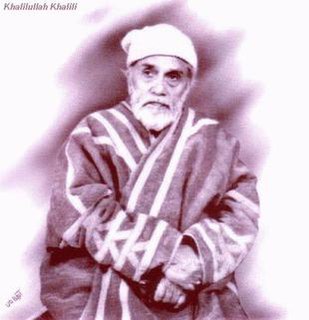 W
WKhalilullah Khalili was Afghanistan's foremost 20th century poet as well as a noted historian, university professor, diplomat and royal confidant. He was the last of the great classical Persian poets and among the first to introduce modern Persian poetry and Nimai style to Afghanistan. He had also expertise in Khorasani style and was a follower of Farrukhi Sistani. Almost alone among Afghanistan's poets, he enjoyed a following in Iran where his selected poems have been published. His works have been praised by renowned Iranian literary figures and intellectuals. Many see him as the greatest contemporary poet of the Persian language in Afghanistan. He is also known for his major work "Hero of Khorasan", a controversial biography of Habībullāh Kalakānī, Emir of Afghanistan in 1929.
 W
WRazaq Mamoon is an author, political analyst and journalist from Afghanistan. He is currently living in Australia since November 2014.
 W
WMohsen Moeini is an Iranian author and director. His work mainly centers around his philosophical and historical preoccupations. As well as directing his own plays, he has directed plays by foreign authors such as Peter Handke and Rainer Werner Fassbinder whose works he staged in Iran for the first time. He has directed the first play to be staged in the Milad Tower.
 W
WMajid Mohammadi is an American author. He is the author of several books in Persian and English.
 W
WJila Mossaed Estakhri is an Iranian-born Swedish writer. She was named a new member of the Swedish Academy on 4 October 2018, and was formally inducted into the Academy on 20 December 2018.
 W
WKhosro Naghed is a Persian writer, Iranist and linguist.
 W
WSalim Neisari was an Iranian Professor of Persian literature and a permanent member of Academy of Persian Language and Literature. He was born on 12 December 1920 in Tabriz, East Azerbaijan Province, Azerbaijan (Iran), Iran and died on 12 January 2019 in Paris, France. He authored the first books on teaching Persian to non-Persian speakers.
 W
WAbdul Latīf Pedrām is a politician and a Member of Parliament in Afghanistan. He emerged as a controversial figure in the press and political circles for campaigning for women's personal rights, a taboo subject in Afghanistan's culture. Currently, he is the leader of the National Congress Party of Afghanistan and is one of the nine representatives of Badakhshan province in the lower house of parliament.
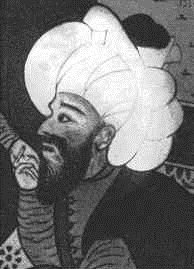 W
WAla al-Dīn Ali ibn Muhammed, known as Ali Qushji was a Timurid theologian, jurist, astronomer, mathematician and physicist, who settled in the Ottoman Empire some time before 1472. As a disciple of Ulugh Beg, he is best known for the development of astronomical physics independent from natural philosophy, and for providing empirical evidence for the Earth's rotation in his treatise, Concerning the Supposed Dependence of Astronomy upon Philosophy. In addition to his contributions to Ulugh Beg's famous work Zij-i-Sultani and to the founding of Sahn-ı Seman Medrese, one of the first centers for the study of various traditional Islamic sciences in the Ottoman caliphate, Ali Kuşçu was also the author of several scientific works and textbooks on astronomy.
 W
WDr. Sayed Makhdoom Raheen is a Persian author and an Afghan politician. He is an ethnic Tajik and is a dual citizen.
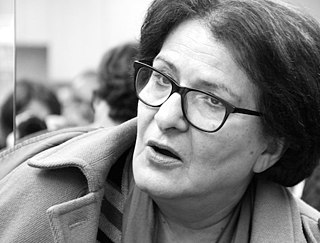 W
WMoniro Ravanipour is an Iranian-American and internationally acclaimed innovative writer who is the author of ten titles published in Iran, including two collections of short fiction, Kanizu and Satan's Stones, and the novels The Drowned, Heart of Steel, and Gypsy by Fire. Her tales, described as "reminiscent in their fantastic blend of realism, myth, and superstition of writers like Rulfo, Garcia Marquez, even Tutuola," frequently take as their setting the small, remote village in southern Iran where she was born. Nahid Mozaffari, editor of Strange Times, My Dear: The International PEN Anthology of Contemporary Iranian Literature, wrote that Ravanipour "has been successful in the treatment of the complex subjects of tradition and modernity, juxtaposing elements of both, and exposing them in all their contradictions without idealizing either." Ravanipour was among seventeen activists to face trial in Iran for their participation in the 2000 Berlin Conference, accused of taking part in anti-Iran propaganda. Copies of her current work were recently stripped from bookstore shelves in Iran in a countrywide police action. She is a former Brown University International Writers Project Fellow.
 W
WJalāl ad-Dīn Muhammad Rūmī, also known as Jalāl ad-Dīn Muhammad Balkhī, Mevlânâ/Mawlānā, Mevlevî/Mawlawī, and more popularly simply as Rumi, was a 13th-century Persian poet, Hanafi faqih, Islamic scholar, Maturidi theologian, and Sufi mystic originally from Greater Khorasan in Greater Iran. Rumi's influence transcends national borders and ethnic divisions: Iranians, Tajiks, Turks, Greeks, Pashtuns, other Central Asian Muslims, and the Muslims of the Indian subcontinent have greatly appreciated his spiritual legacy for the past seven centuries. His poems have been widely translated into many of the world's languages and transposed into various formats. Rumi has been described as the "most popular poet" and the "best selling poet" in the United States.
 W
WHosain Sanapour is an Iranian writer.
 W
WJafar Shahidi known as Seyed Jafar Shahidi was a distinguished scholar of the Persian language and literature, and a renowned historian of Islam. Born in Boroujerd, Lorestan Province, Iran, Shahidi dedicated his life to Persian studies, acting as the director of the Dehkhoda Dictionary Institute and International Center for Persian Studies (ICPS), serving as the Dean of the Faculty of Literature and Humanities at the University of Tehran (UT), and mastering the fields of jurisprudence and Islamic history. As a member of the Faculty of Literature and Humanities at the University of Tehran, Shahidi specialized in the study of Persian language and literature as well as Islamic theology, jurisprudence, and history.
 W
WDariush Shayegan was one the most consequential thinkers of contemporary Iran and the Near East.
 W
WHamid Reza Shekarsari is an Iranian poet, researcher, author and literary critic. He has published more than 20 volumes of poetry and literary research.
 W
WAhmad Tafazzoli was a prominent Iranian Iranist and professor of ancient Iranian languages and culture at Tehran University.